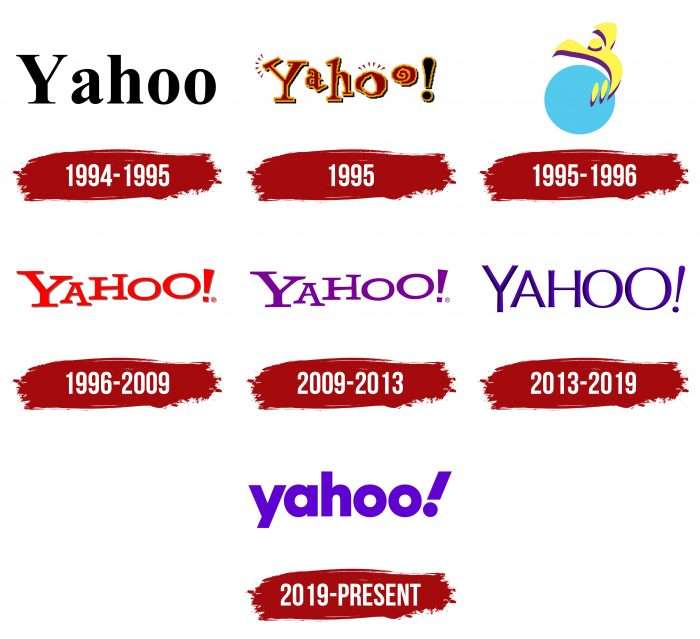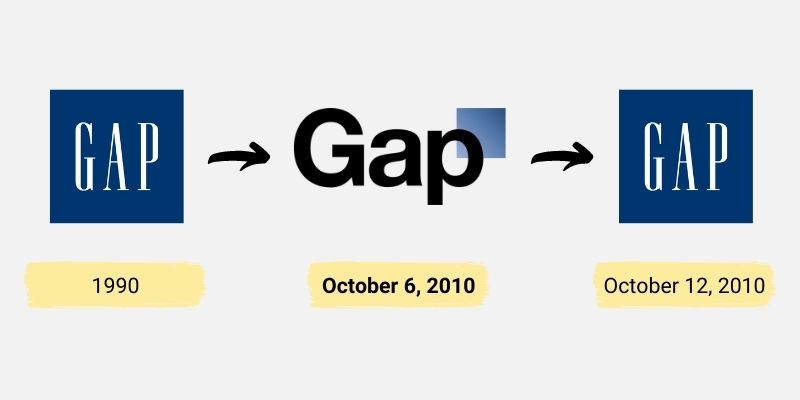
How Ignoring Brand Awareness Can Affect Growth
In the intricate tapestry of business, brand awareness stands out as a pivotal thread. It’s not just about consumers recognizing a logo or company name; it’s about a brand’s position in the market and its relationship with its audience. Let’s delve into this topic, addressing some pressing questions from a CEO’s perspective.
Table of Contents
Blog Newsletter
Why is brand awareness necessary?
Brand awareness is the cornerstone of a company’s presence in the market. It’s the initial step in a customer’s journey with a brand, influencing their perceptions, decisions, and interactions. Here’s why it’s indispensable:
Consumer Trust and Loyalty:
A recognizable brand often commands trust. According to a Nielsen survey, 59% of consumers prefer to buy products from brands they know. This trust can translate into long-term loyalty, ensuring repeat business and reducing the cost of acquiring new customers.
Competitive Edge:
In a saturated market, brand awareness can be the differentiating factor that sets a company apart from its competitors. It ensures that the brand remains top-of-mind for consumers when making purchasing decisions.
Facilitated Marketing Efforts:
A well-established brand can amplify the effects of marketing campaigns. When consumers are already familiar with a brand, they’re more likely to engage with its advertisements and promotions.
Higher Revenue:
A recognizable brand often enjoys higher sales. As per a Lucidpress report, consistent brand presentation across all platforms can lead to a 33% increase in revenue.
Stakeholder Confidence:
Beyond customers, brand awareness also impacts other stakeholders, including investors, partners, and employees. A strong brand presence can attract investment, foster partnerships, and draw in top talent.
Fundamentally, an absence of branding can be likened to navigating uncharted waters without a map. It renders a business adrift in the expansive marketplace, complicating its efforts to tackle obstacles, seize potential prospects, and forge enduring bonds with its clientele.
The Implications of Lacking Brand Awareness
A lack of branding in business isn’t just an absence of a logo or tagline. It signifies a deeper void in a company’s identity and its relationship with its audience. Without a clear identity, messaging can become inconsistent, trust-building becomes challenging, and market presence diminishes. Here are some specific repercussions:
Missed Revenue Opportunities:
Potential customers might overlook or not consider a brand they’re unfamiliar with.
Increased Marketing Costs:
More resources are needed to make an impression in the market.
Difficulty in Building Trust:
Unfamiliar brands often face skepticism from potential customers.
Increased Marketing Costs:
More resources are needed to make an impression in the market.
Challenges in Talent Acquisition:
Top talent gravitates towards well-known brands.
Limited Organic Growth:
Word-of-mouth referrals decrease with low brand recognition.
Investor Hesitation:
Potential investors might perceive low brand awareness as a weak market position.
Longer Sales Cycles:
More time is spent educating potential customers about the brand.
Vulnerability to Competition:
Competitors can easily overshadow brands with low visibility.
Difficulty in Market Expansion:
Entering new markets becomes challenging without existing brand recognition.
Reduced Customer Loyalty:
Customers are less likely to stay loyal to brands they barely recognize.
Strategies to Bolster Brand Awareness and Visibility
Navigating the challenges of limited brand recognition requires a strategic and multifaceted approach. While the implications of low brand awareness can be daunting, they are not insurmountable. With the right tactics and determination, businesses can effectively bolster their brand’s presence in the market. Let’s explore some actionable strategies to remedy this situation.
Engaging Content Marketing:
Regular, high-quality content can position a company as an industry thought leader.
Dynamic Social Media Engagement:
Active participation on platforms where the target audience resides can boost visibility.
Strategic Collaborations:
Partnering with influencers or complementary brands can amplify visibility.
Customer Advocacy:
Encourage satisfied customers to share their experiences.
Continuous Market Research:
Stay updated with market trends and adapt strategies accordingly.
Invest in Advertising:
Utilize both online and offline advertising channels.
Attend Industry Events:
Participate in trade shows, webinars, and conferences.
Leverage SEO and SEM:
Optimize online content for search engines to increase organic reach.
Implement Referral Programs:
Incentivize customers to refer your brand to others.
Feedback and Iteration:
Regularly gather feedback and refine strategies based on insights.
What is lack of branding in business?
Lack of branding in business goes beyond just an absence of a logo or a catchy tagline. It signifies a deeper void in a company’s identity and its relationship with its audience. Here’s a more detailed look at what this entails:
Undefined Identity:
At its core, branding is about defining a company’s essence — its values, mission, and vision. A lack of branding means the company doesn’t have a clear identity, making it challenging for consumers to understand what the business stands for.
Inconsistent Messaging:
Without a solid branding foundation, a company’s messaging can become inconsistent across different platforms and campaigns. This inconsistency can confuse customers and dilute the company’s presence in the market.
Reduced Market Presence:
A business without strong branding often struggles to make a mark in the market. It becomes just another name among competitors, lacking the distinctiveness to stand out.
Difficulty Building Trust:
Branding is a tool to build trust. Without it, businesses face an uphill battle convincing consumers of their credibility and reliability.
Challenges in Expansion:
As a business grows and looks to expand into new markets or product lines, a lack of branding can hinder its efforts. A strong brand provides a foundation upon which new ventures can be introduced seamlessly.
Vulnerability to Competition:
Without a defined brand, a business is more susceptible to market shifts and competitive strategies. It lacks the shield that a strong brand provides against competitors’ moves.
Delving Deeper into Brand Awareness
Brand awareness is more than just a buzzword; it’s a multifaceted concept that shapes a company’s relationship with its audience. To truly grasp its depth, we need to explore its various facets and nuances.
Types of Brand Awareness:
Top-of-Mind Awareness: This is the pinnacle of brand awareness. It refers to brands that consumers think of immediately when a particular product or service category is mentioned. For instance, when someone thinks of fast food, if “McDonald’s” is the first name that comes to mind, that’s top-of-mind awareness.
Aided Recall: Here, consumers recognize a brand when they see or hear its name among a list of other brands. They might not remember it spontaneously, but they know it when they see it.
Unaided Recall: This is when consumers can remember and recognize a brand without any prompts. It’s a strong indicator of a brand’s presence in a consumer’s mind.
Examples of Poor Brand Awareness:
New Coke: In 1985, Coca-Cola introduced a new formula hoping to rejuvenate its product. However, the public backlash was immense, leading them to revert to the original formula.
Yahoo’s Branding Confusion: Over its lifespan, Yahoo underwent multiple logo changes and rebranding efforts, leading to brand inconsistency and confusion among users.
Gap’s Logo Redesign: In 2010, Gap unveiled a new logo, only to face significant public criticism. They quickly reverted to the original design.
PepsiCo’s Tropicana: A complete packaging redesign in 2009 led to a 20% fall in sales over a two-month period, indicating that the new design didn’t resonate with its audience.
J.C. Penney’s Pricing Strategy: Their shift from regular sales and discounts to an “everyday low prices” model confused customers, leading to a decline in sales
Timeframe for Building Brand Awareness:
Building brand awareness isn’t an overnight endeavor. While initial recognition can be achieved within a few months of targeted marketing, establishing deep-rooted brand awareness and loyalty often takes years of consistent effort, engagement, and adaptation to market changes.
Brand Awareness Strategy Defined:
A brand awareness strategy is a cohesive plan designed to enhance a brand’s visibility and recognition among its target audience. It encompasses various marketing, engagement, and positioning tactics. This strategy is tailored to resonate with potential customers, ensuring that the brand not only reaches its audience but also leaves a lasting impression, fostering trust and loyalty.
Transform your brand's narrative and visibility. Begin your journey to heightened brand awareness .
To Conclude
In the intricate world of business, brand awareness stands as a beacon, guiding companies towards meaningful connections with their audience. From understanding its profound implications to implementing strategies that resonate, brand awareness is undeniably central to a company’s success. As we’ve explored, it’s not just about recognition; it’s about forging trust, loyalty, and a lasting bond with consumers. In an era where choices are abundant, and attention spans are fleeting, a robust brand awareness strategy is the compass that ensures businesses don’t just navigate but thrive in the vast marketplace. Whether you’re a budding startup or an established enterprise, remember: your brand’s voice deserves to be heard, recognized, and celebrated.
At The Marketing Alchemists, we are committed to promoting sustainability and eco-friendliness through our digital marketing strategies and creative services. We believe that by working with environmentally and socially responsible companies, we can help pave the way for a more sustainable future.
Let’s work together and make a difference. Talk to a Marketing Alchemist.








